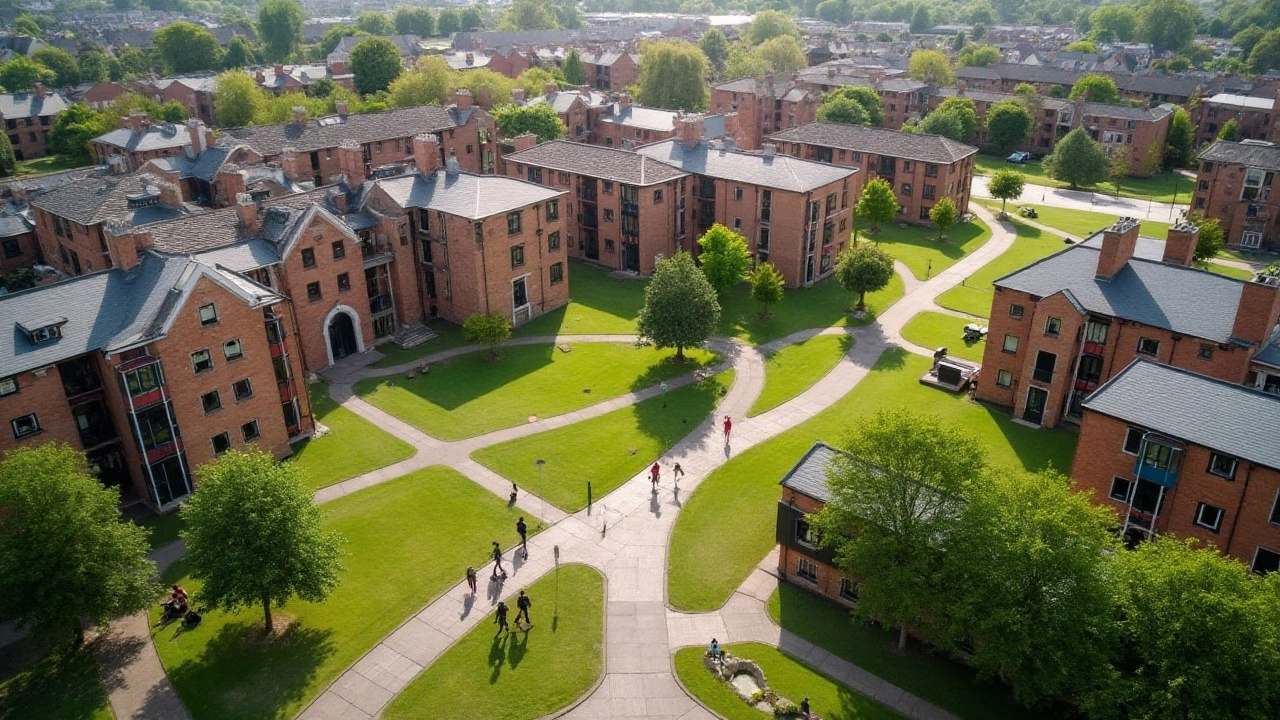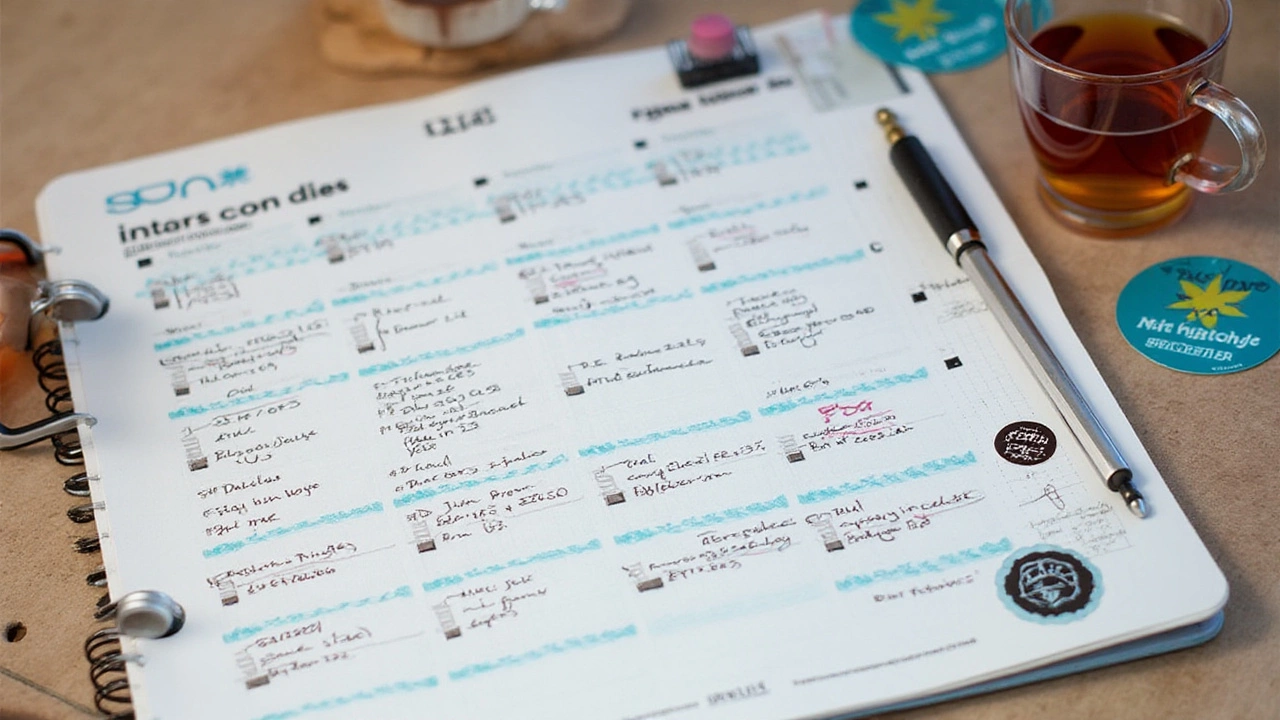Embarking on the journey of higher education is an exciting adventure filled with endless possibilities and new experiences. One of the key aspects to consider is student accommodation, an environment that serves as both a home and a hub of activity for many. While settling in is easy, understanding how long you can remain in student accommodation can sometimes be a complex matter.
This consideration not only impacts your academic pursuits but also affects your social life and financial planning. In this article, we'll uncover the ins and outs of how long you can stay in student housing and provide tips to enhance your living experience. Whether you're keen on staying in the same place until the tassel turns or planning to explore other options during your study, being well-informed can make a world of difference.
- Introduction to Student Accommodation Timelines
- Standard Duration for Various Educational Levels
- Factors Impacting Accommodation Duration
- Strategies to Extend Your Stay
- Alternative Housing Options Once Time Expires
- Tips for a Smooth Transition
Introduction to Student Accommodation Timelines
Settling into student accommodation is a milestone many students eagerly anticipate as they embark on their educational journey. But being informed about the possible duration of your stay can sometimes be just as important as knowing where you'll be living. The timeline of accommodation can vary greatly depending on a number of factors, including your institution's policies, your level of education, and in some cases, even your academic performance and personal circumstances. Traditionally, student housing contracts align with the academic calendar, typically spanning an academic year or a semester.
For undergraduate students, most universities offer housing agreements that cover nine months, aligning with the academic year, leaving the summer months to fend for alternative arrangements. Graduate students, however, may encounter different timelines, as their programs often have varying lengths and seasonal requirements. Some programs even extend year-round, requiring students to seek out permanent or longer-term housing solutions. According to a survey conducted by the Association of College and University Housing Officers-International (ACUHO-I), around 43% of student residents explore other housing after their initial year.
Interestingly, as educational trends evolve, many institutions now offer flexible housing contracts that cater to international students, exchange programs, or specialized short-term studies. This adaptability is a bonus, yet it requires students to maintain an awareness of application deadlines and renewal notices to secure their preferred accommodation. It is not uncommon for the demand for on-campus housing to exceed supply, especially in urban areas, prompting many students to strategize and possibly consider off-campus options or private accommodation in shared apartments.
"To navigate through the intricacies of student housing, proactive planning and understanding the fine print of housing contracts are imperative," suggests housing expert Sophie Ellis in her book 'Living and Learning: A Student's Guide to College Housing'.
Moreover, housing officials at universities often recommend students explore accommodation details and expectations prior to finalizing their enrollment. This proactive approach not only ensures that students are prepared but also minimizes the stress that might come with last-minute housing searches. As students transition through different stages of their academic journey, understanding their accommodation timelines becomes essential in maintaining continuity in their university life. So, whether you're just stepping into university life or you're an upper-year student planning your next move, grasping the dynamics of student housing timelines will empower you to make well-informed decisions.
Standard Duration for Various Educational Levels
When diving into the world of student accommodation, one of the most crucial aspects to understand is the typical length of stay allotted to each educational level. Generally, university and college housing frameworks are tailored to fit the standard duration of a student's course or program, but it can vary significantly depending on the institution and the type of program in which you are enrolled. For undergraduate students, residential halls usually offer accommodation for the duration of their degree, typically spanning three to four years. However, this can change if a student is pursuing a specific course that demands a longer academic commitment, such as degrees in the medical or engineering fields that may require five to six years.
The story slightly shifts for postgraduate programs. Often, postgraduate students find their duration in accommodation matching the shorter length of their courses. Master's programs usually range from one to two years, and most university housing will coincide with this timeline. Yet, some universities have limited spaces for postgraduates, leading them to explore alternative housing options like private rentals if their study extends beyond a year. A doctoral program, with its open-ended nature, sometimes extending anywhere from three to seven years, often requires a bespoke housing plan. Universities might offer initial accommodations with renewal options, or they might recommend external housing solutions as students progress past their initial years.
"University accommodations are designed to embrace the academic journey," says Alex Mitchell, a housing coordinator with over two decades of experience in the educational sector. "But the key is flexibility, ensuring that every student can focus on their studies without worries about where they'll hang their hat next semester."
An interesting difference comes into play when considering international students, who may need more rigid accommodation arrangements due to their limited local knowledge and networks. Some institutions offer comprehensive housing packages that cover the entire duration of their studies to provide this group with stability and reassurance. Students entering preparatory or foundation courses might also find similar arrangements, although these typically cover a single-year duration before transitioning into more conventional undergraduate programs.
Factors Influencing Accommodation Duration
Despite these general norms, several factors can alter the standard duration of college dorm stays. Academic performance plays a not-insignificant role; some accommodations are contingent on maintaining certain grades or fulfilling specific academic criteria. In contrast, others might be strictly tied to extracurricular commitments or special programs with unique timelines, such as exchange projects or internships abroad. Financial considerations can also sway decisions. While many accommodations come with pre-set durations, financial aid or scholarship stipulations might lengthen or shorten the expected stay.In a rapidly changing educational landscape, understanding your housing options and the standard durations offered by your institution is vital. Ensuring your timeline aligns with your academic goals and personal circumstances can help pave a smooth path through the labyrinth of higher education, leaving you free to pursue your dreams with peace of mind.

Factors Impacting Accommodation Duration
When considering your stay within student accommodation, several factors come into play that can significantly influence your living arrangements. The primary factor is the type of academic program you’re enrolled in. For instance, students pursuing undergraduate degrees may find that their accommodation contracts are designed to cover the duration of their academic studies, typically three or four years. Similarly, postgraduate students often have contracts aligned with their shorter course durations, which can range from one to two years. Therefore, understanding the structure of your program is crucial as it sets the basic timeline for your stay.
Another critical factor is university policies regarding student housing. Each institution governs its accommodations differently, enforcing rules that specify not only the length of stay but also renewal processes. Universities might offer extended stays beyond the usual tenure for students involved in specific projects, such as research or internships. It's important to check with your university's housing office regularly to stay informed about any opportunities or changes to policies that might affect your tenure.
Financial considerations can also impact how long you remain in university housing. While some accommodations are priced for affordability, others might strain your budget, especially if you’re relying on scholarships or loans. In such cases, students are often advised to explore part-time work opportunities or seek financial advice from university services to balance housing expenses effectively. Interestingly, statistics show that over 60% of students in New Zealand opt for shared accommodations to alleviate costs, a trend that reflects the communal nature of student living environments.
Moreover, personal circumstances play a pivotal role in determining how long you stay in college dorms. Some students might choose to relocate due to personal growth aspirations, proximity to new opportunities, or for the sake of change itself. A study conducted by the Association of University Administrators in 2022 highlighted that nearly 40% of students consider changing accommodations at some point during their studies, citing reasons ranging from wanting better facilities to desiring a different social atmosphere.
"Accommodations should adapt to students' evolving needs," noted Dr. Anne Richardson, a leading figure in university housing management. "The environment in which students live can impact their academic performance and personal growth more than we often realize."
Finally, social dynamics within student accommodations can influence decisions on duration. The friendships and networks built here can strongly sway students' desire to extend or reduce their stay. Active participation in communal activities, clubs, or residence life events often ties students emotionally to their living spaces. These interactions can shape a student’s experience positively, prompting them to hold onto their accommodation for longer than originally planned. Conversely, challenging social dynamics might push some students to seek alternative arrangements sooner.
Strategies to Extend Your Stay
Securing an extended stay in student accommodation can feel like an intricate dance with logistics, yet it's far from impossible. A practical strategy is to be proactive about your housing needs well in advance. Many universities and colleges have specific deadlines and protocols for housing applications and renewals. Familiarizing yourself with these timelines and staying ahead can significantly increase your chances of securing continued residence. It's beneficial to maintain open communication with your housing office and express your intentions early, so you're on their radar when spaces become available or policies are adjusted.
Building a rapport with housing staff can prove advantageous. These are the gatekeepers who have insights and information that isn't always publicly disseminated. Sometimes, vacancies arise unexpectedly due to other students' circumstances changing, and being in the right place at the right time can make all the difference. Additionally, demonstrating good behavior and adhering to accommodation guidelines can weigh positively on your application if housing decisions are influenced by tenant conduct.
Another effective strategy involves increasing your involvement on campus. Many institutions offer additional benefits or preference in housing to students who actively contribute to the community. Joining student governance, participating in residence hall events, or becoming a resident advisor can bolster your application for extending your accommodation. As Bernard Shaw aptly puts it,
"Progress is impossible without change, and those who cannot change their minds cannot change anything."This quote encapsulates the adaptability required when dealing with limited space and high demand in student accommodation.
Moreover, staying informed about alternative housing programs that universities might offer can broaden your options. Sometimes, external partnerships with organizations provide supplementary housing solutions, specifically aimed at students beyond the typical duration. Keeping an eye on your educational institution’s newsletters or announcements can also reveal new initiatives or pilot programs in which you might partake. Prioritizing such alternatives is a smart way to navigate the complexities of student accommodation housing without uprooting your routine.
Lastly, consider exploring private rentals as part of your strategy. While this might not keep you within the university’s stronghold of college dorm comforts, extending into the private market can present unique learning experiences. It’s essential to prepare by researching local areas, comparing rental prices, and understanding lease agreements. This preparation enables a smooth transition should you need to seek housing beyond the borders of campus life. Remember, adaptability and early action are your biggest allies in keeping your student living experience stress-free and enjoyable.

Alternative Housing Options Once Time Expires
When the clock is ticking and your stay in student accommodation is nearing its end, it's essential to explore other viable housing options. Navigating this transition can be daunting but being proactive can alleviate much of the stress. As a student, especially in urban centers, one popular choice is to move into shared housing, often referred to as flatting. This offers not just a roof over your head but also a more independent living experience that many find enriching. In cities with vibrant university communities, it’s common to find students teaming up to rent apartments or houses together. Shared costs in these arrangements can make it an economical option, plus you have the added benefit of living with friends or making new ones. The social aspect can ease the shift from the communal environment of on-campus housing.
An option often overlooked is university-affiliated off-campus housing. Some institutions have agreements with nearby landlords to provide special rates and terms to their students. It's worth inquiring with your university’s housing office about such arrangements. These can sometimes offer the best of both worlds – proximity to campus and a semblance of the youthful energy that university life exudes, but with more freedom and flexibility. If moving is imminent in your plan, townhouses and apartment complexes around the university often see student demand spikes, so acting promptly is beneficial. Searching online through housing platforms dedicated to students, like UniLodge or Student.com, can also streamline the hunt.
"The transition out of student housing can be a transformative step towards adulthood, requiring prudent planning and adaptability," says Dr. Sarah Jenkins, author of 'Housing and the Modern Student'.
For those considering a change in pace, why not explore cooperative housing or co-housing communities? While less common, they offer a unique blend of shared resources and responsibilities, providing a support network and often embodying sustainable living practices. These communities are ripe for those looking to connect deeply with others while gaining practical life skills. It's a departure from standard tenancy but provides a strong sense of belonging. Lastly, it’s practical to consider family or guardians, especially during transitional periods such as completing studies or internships. A brief return to a familial setting can offer comfort and financial respite while plotting one’s next steps.
And let us not forget the importance of thorough research and understanding local tenancy laws. Familiarizing yourself with your rights can prevent future complications. Take, for instance, the vigilance needed in reading lease agreements, particularly noticing terms regarding deposits, notice periods, and maintenance responsibilities. Websites such as the Tenancy Services in New Zealand provide pivotal guidance in navigating these waters. A well-informed decision today can save headaches tomorrow, leaving you with more energy to focus on what truly matters - your academic and personal growth.
Securing alternative housing once you transition out of student accommodation doesn’t have to be an overwhelming task. If planned wisely, it can be a step into a new chapter filled with exciting opportunities. With a host of options at your disposal, weighing each against your unique needs, preferences, and budget is crucial. After all, wherever home is, it should be a place of comfort and growth as you navigate your educational journey and beyond.
Tips for a Smooth Transition
Transitioning from student accommodation back to mainstream living or even a different type of housing can be a significant change. It’s important to start planning early to ensure the move is as seamless as possible. One of the key tips for a smooth transition is to understand your end date. Knowing exactly when your stay in student housing ends will help you plan your next steps without feeling rushed. Begin your search for new housing options several months in advance. This allows you to explore a variety of choices without feeling the pressure of time, ensuring you find a place that meets your needs and budget.
Another critical aspect of a smooth transition is managing your finances. While student accommodation often offers inclusive bills, switching to private housing may mean separate utility payments, which can significantly alter your budget. Establish a detailed financial plan that includes all potential expenses, from rent to groceries, and consider setting aside a bit extra for unexpected costs. Seek advice from a financial advisor or your university’s financial services if necessary, to make sure you're on the right path.
Equally important is organizing your belongings well ahead of your move-out date. Leaving packing until the last minute leads to unnecessary stress and increases the likelihood of accidentally leaving something behind. Create a comprehensive packing checklist and begin by sorting items into categories: what to take, what to store, and what to donate or discard. This methodical approach not only lightens your load but also gives you a clearer picture of your inventory for your next residence.
Capture your experiences, learnings, and invaluable connections during your time in university housing. Writing reflections or creating a scrapbook can give you a sense of closure and helps you to appreciate the growth spurts—intellectual, social, and emotional—experienced during this period. Maintaining these connections with friends and mentors nurtures a strong support network that you can lean on as you embark on new adventures beyond the campus gates.
To enhance your adaptability, seek advice from peers who have already navigated this transition. In one insightful reflection, Maya Angelou once said,
"You will face many defeats in life, but never let yourself be defeated."This mentality can be particularly uplifting as you transition into new living circumstances. Reach out to the community or alumni groups who might have practical advice or recommendations for navigating this stage.
As you prepare for the next chapter of your life, remember that transitions inherently involve change, which is always accompanied by its share of challenges and rewards. Embrace the opportunity to grow, learn, and reinvent yourself as you continue your journey. By planning thoughtfully and staying proactive, you can ensure your transition from college dorm to new domicile is as smooth as possible.
